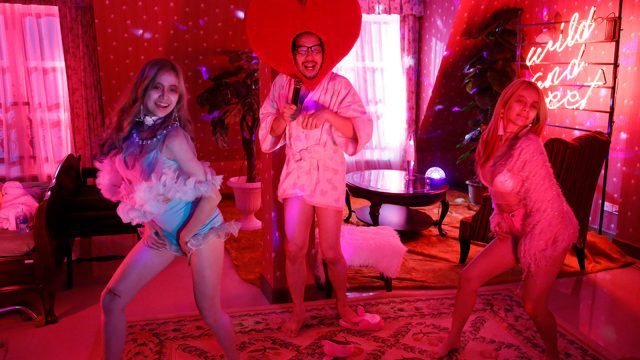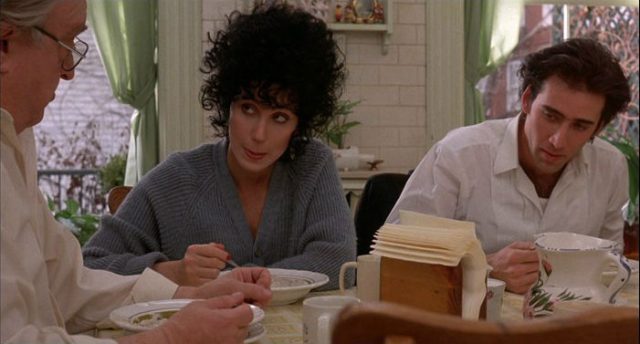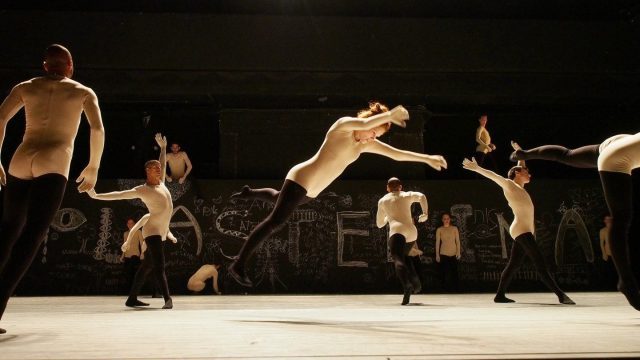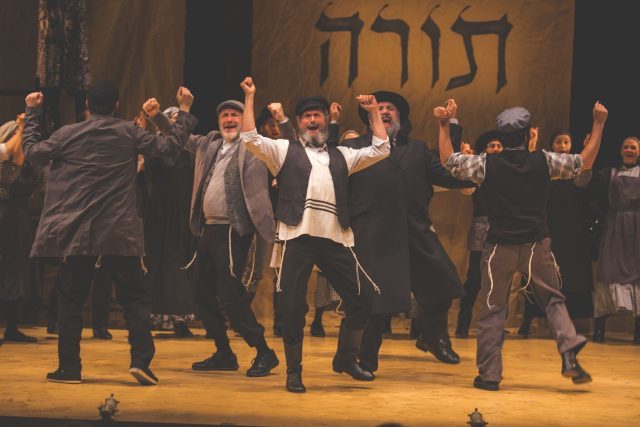
Steven Skybell leads a rousing adaptation of Fiddler on the Roof as Tevye (photo by Victor Nechay / ProperPix)
Museum of Jewish Heritage — A Living Memorial to the Holocaust
Edmond J. Safra Plaza, 36 Battery Pl.
Wednesday – Sunday through December 30, $70-$121
866-811-4111
nytf.org/fiddler-on-the-roof
mjhnyc.org
I only wish my mother were still alive to see the dazzling US premiere of Fiddler on the Roof in Yiddish. Shraga Friedman’s adaptation, Fidler Afn Dakh, debuted in Israel in 1965 and has finally made it to New York City, where it is being presented by the National Yiddish Theatre Folksbiene at the Museum of Jewish Heritage through December 30. Directed with verve and style by Tony and Oscar winner Joel Grey, whose father was klezmer star Mickey Katz, the rousing three-hour production features musical staging and choreography by Staś Kmieć, inspired by Jerome Robbins’s original, with musical direction by conductor and NYTF artistic director Zalmen Mlotek. The show is the Fiddler we know and love, the tale of a shtetl on the eve of the 1905 Russian Revolution, complete with stirring nightmare, breathtaking bottle dance, and a sewing machine, with music by Jerry Bock, lyrics by Sheldon Harnick, and book by Joseph Stein. But the Yiddish version, with Harnick and Harold Prince serving as consultants, offers neat little twists on the language; Friedman’s translation goes back to Sholem Aleichem’s original Tevye stories and reconfigures numerous lines to match the rhythm and meaning in Yiddish.
Thus, “Tradition” becomes “Traditsye,” “If I Were a Rich Man” turns into “Ven Ikh Bin a Rotshild” (“If I Were a Rothschild”), and “Matchmaker, Matchmaker” is sung as “Shadkhnte, Shadkhnte.” In “Sunrise, Sunset” (“Tog-Ayn, Tog-Oys”), “I don’t remember growing older / When did they?” becomes “Just give a look, how grown up / they’ve become,” while in “Do You Love Me?” (“Libst Mikh, Sertse?), “For twenty-five years I’ve washed your clothes, / cooked your meals, cleaned your house” turns into “For twenty-five years I’ve washed your wash, / I rub and polish pots of brass.” The lyrics are sung in Yiddish, with Russian and English surtitles. Tony winner Beowful Boritt’s spare set is backed with three long, hanging scrolls representing the parchment of the Torah; the word “Torah” is written on the middle section in Hebrew. The twelve-person orchestra plays behind the scrolls, partially visible.
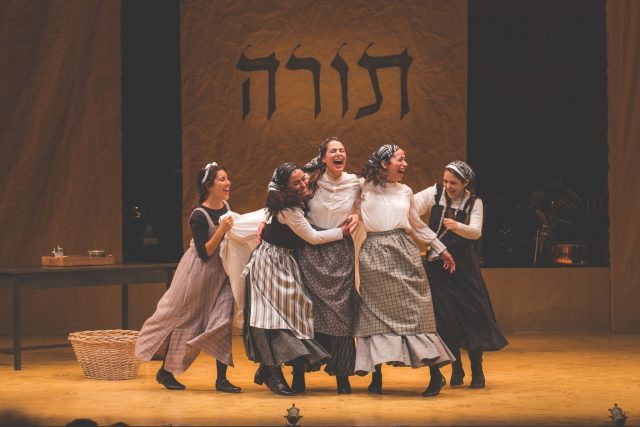
Tevye and Golde’s five daughters look toward a new future in Fidler Afn Dakh (photo by Victor Nechay / ProperPix)
The utterly superb Steven Skybell, an Obie winner for Antigone in New York, joins a long line of actors portraying Tevye the milkman, from Zero Mostel, Topol, Theodore Bikel, Leonard Nimoy, and Herschel Bernardi to Alfred Molina, Harvey Fierstein, and Danny Burstein, but he’s the first one to do it in Yiddish in America. He shakes his body with vigor, slyly smiles as Tevye looks to G-d for answers, and playfully debates various incidents on one hand and the other. The narrative looks directly at modernity and change from two main perspectives; the personal and the communal. Tevye and his wife, Golde (Jill Abramovitz), are raising five daughters, Tsaytl (Rachel Zatcoff), Hodl (Stephanie Lynne Mason), Khave (Rosie Jo Neddy), Shprintze (Raquel Nobile), and Beylke (Samantha Hahn). Town gossip and matchmaker Yente (Jackie Hoffman) arrives one day to tell Golde that the wealthy, much older butcher, Leyzer-Volf (Bruce Sabath), wants to marry Tsaytl, but unbeknownst to either of them, Tsaytl is in love with the poor tailor, Motl Kamzoyl (Ben Liebert). Tsaytl and Motl’s determination to make their own match goes against tradition and the father’s power — and also leads to Hodl wanting to be with progressive teacher and political radical Pertshik (Daniel Kahn) and Khave falling for non-Jew Fyedka (Cameron Johnson), as women start making decisions for themselves. The excellent cast also includes Lauren Jeanne Thomas as Der Fiddler, Kirk Geritano as Avrom the bookseller, Jodi Snyder as Frume-Sore, Michael Yashinsky as Mordkhe the innkeeper, Der Rov as the rabbi, Jennifer Babiak as Grandma Tsaytl, and Evan Mayer and Nick Raynor as Fyedka’s friends, Sasha and Yussel.
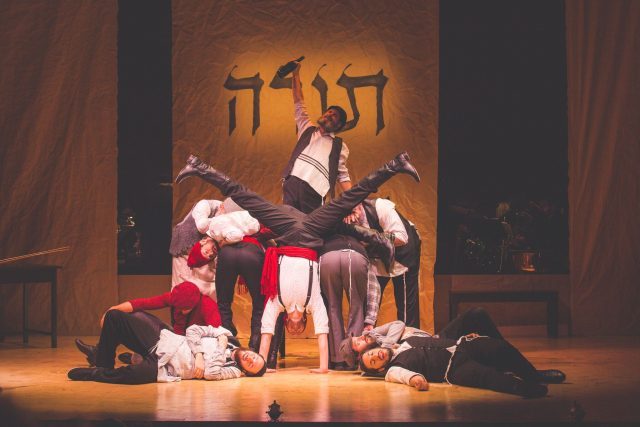
Joel Grey directs Yiddish version of Fiddler with verve and panache (photo by Victor Nechay / ProperPix)
The other key plot point centers around anti-Semitism and the future of the shtetl. Der Gradavoy (the constable, played by Bobby Underwood) warns Tevye, whom he claims to like and respect, that there is going to be an unofficial demonstration by the police to rattle the village in order to assert their control. “Thank you, your excellency,” Tevye says. “You are a good person. It’s a shame you aren’t a Jew.” Anatevke is in danger, but the residents don’t want to leave the only home most of them have ever known. I’ve seen numerous Fiddlers over the years, but this Yiddish version, which could have felt dated and old-fashioned, instead is very much of the moment in the wake of the immigrant and refugee crisis currently going on in America and around the world. It’s chilling watching the final scenes in light of what is shown on the news night after night. The National Yiddish Theatre Folksbiene has been on quite a roll since celebrating its centennial in 2015, with a wonderful adaptation of The Golden Bride, the Drama Desk-nominated Amerike — the Golden Land, and a sensational work-in-progress preview of The Sorceress. This Yiddish version of Fiddler on the Roof should be another big hit for the talented troupe. And my mother would have loved it.
Note: There will be a series of preshow discussions ($5, 6:30) called “Fiddler Talks: From Anatevka to Broadway and Back Again,” consisting of “The Making of Fiddler on the Roof” on July 18, “Transforming Fiddler on the Roof into Fidler Afn Dakh” on July 25, “Sholem Aleichem’s Tevye and Fiddler’s, or ‘Was Tevye a Traditional Jew?’” on August 8, and “Shalom / Sholom the Yiddish Mark Twain” on August 22. In addition, Tevye Served Raw, which includes two Tevye tales not in Fiddler on the Roof as well as other Aleichem works, opens July 17 at the Playroom Theatre.
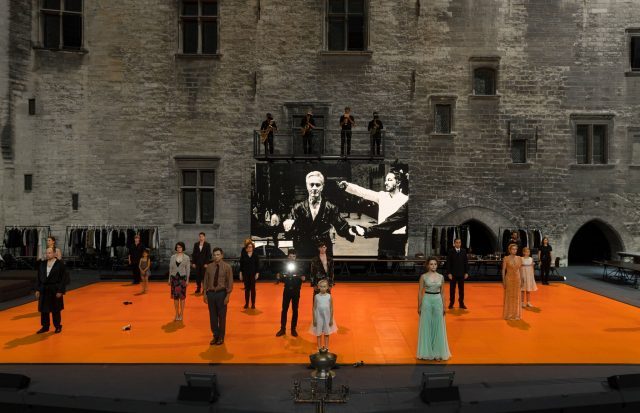
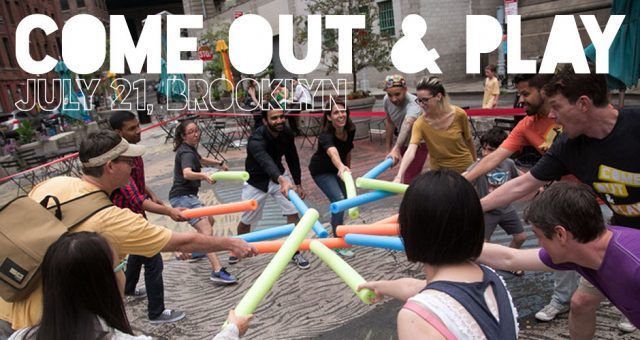
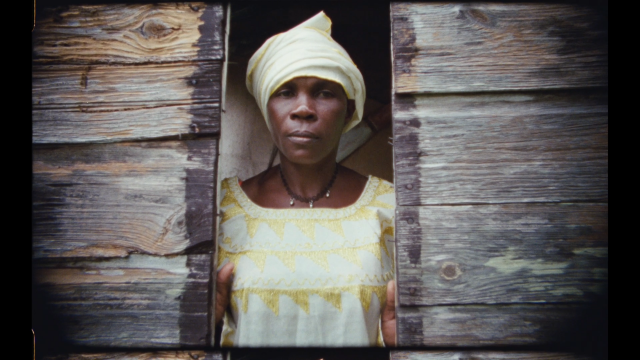
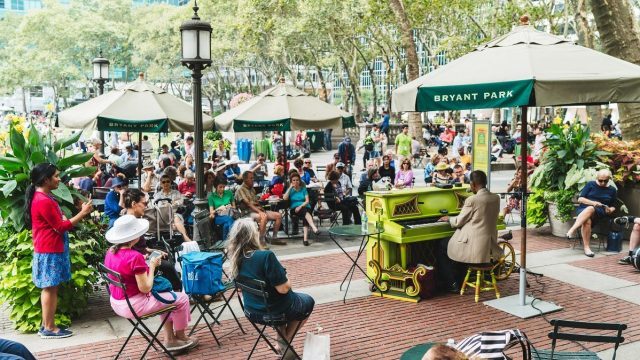
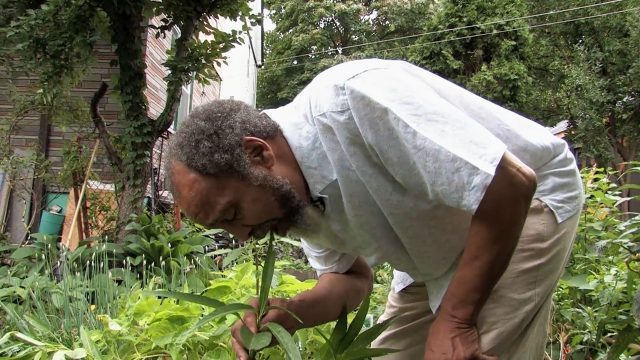
 Jake Meginsky’s unconventional documentary of unconventional musician Milford Graves begins with the following epigraph from Graves: “Look at the room downstairs / Look at the garden outside / Don’t try to analyze it / Just take it in.” That is not only Graves’s life philosophy but also the best way to experience Milford Graves Full Mantis, which opens today at Metrograph. Born in 1941 in South Jamaica, Queens, where he still resides, Graves is an avant-garde free jazz percussionist who plays and lives to his own beat. In 2004, Meginsky knocked on Graves’s door, asked to study with him, and soon became the Professor’s assistant. He’s been documenting him ever since; the film, codirected by drummer Neil Young, who also edited and photographed it with Meginsky, features compelling live footage along with peaceful moments in Graves’s basement and expansive garden. Early on, Meginsky shows a wild excerpt from a 1973 concert at the Jazz Middelheim Festival in Antwerp in which Graves performs with Joe Rigby and Hugh Glover on reeds and Arthur Williams on trumpet; the fierce, dissonant music might not be to everyone’s taste, but it serves as a terrific counterpoint to Graves’s calmer side, pontificating on, well, sometimes it’s hard to tell what, but it’s always fascinating.
Jake Meginsky’s unconventional documentary of unconventional musician Milford Graves begins with the following epigraph from Graves: “Look at the room downstairs / Look at the garden outside / Don’t try to analyze it / Just take it in.” That is not only Graves’s life philosophy but also the best way to experience Milford Graves Full Mantis, which opens today at Metrograph. Born in 1941 in South Jamaica, Queens, where he still resides, Graves is an avant-garde free jazz percussionist who plays and lives to his own beat. In 2004, Meginsky knocked on Graves’s door, asked to study with him, and soon became the Professor’s assistant. He’s been documenting him ever since; the film, codirected by drummer Neil Young, who also edited and photographed it with Meginsky, features compelling live footage along with peaceful moments in Graves’s basement and expansive garden. Early on, Meginsky shows a wild excerpt from a 1973 concert at the Jazz Middelheim Festival in Antwerp in which Graves performs with Joe Rigby and Hugh Glover on reeds and Arthur Williams on trumpet; the fierce, dissonant music might not be to everyone’s taste, but it serves as a terrific counterpoint to Graves’s calmer side, pontificating on, well, sometimes it’s hard to tell what, but it’s always fascinating. 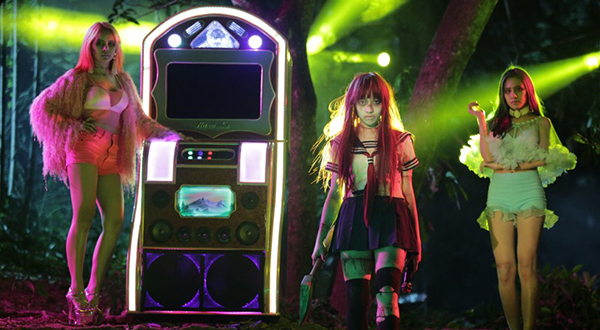
 You’re going to think twice about the next time you see a karaoke machine after watching Premika, Siwakorn Jarupongpa’s delightfully fun 2017 horror-comedy making its North American premiere July 13 at the New York Asian Film Festival. The candy-colored Thai flick is set at the grand opening of a hotel in the middle of a forest, where an oddball group of supposed VIPs have gathered. When one of the guests asks if the hotel is haunted, hotel manager Mr. Lee (Fu Nan) freaks out, because of course there is a ghost, and quite an awesome one at that. A young woman in a Sailor Moon outfit whom the police have dubbed “Premika” (Natthacha De Souza) has been murdered by a lake, her body chopped into pieces by a mystery assailant, and she’s determined to stick around until the killer is caught.
You’re going to think twice about the next time you see a karaoke machine after watching Premika, Siwakorn Jarupongpa’s delightfully fun 2017 horror-comedy making its North American premiere July 13 at the New York Asian Film Festival. The candy-colored Thai flick is set at the grand opening of a hotel in the middle of a forest, where an oddball group of supposed VIPs have gathered. When one of the guests asks if the hotel is haunted, hotel manager Mr. Lee (Fu Nan) freaks out, because of course there is a ghost, and quite an awesome one at that. A young woman in a Sailor Moon outfit whom the police have dubbed “Premika” (Natthacha De Souza) has been murdered by a lake, her body chopped into pieces by a mystery assailant, and she’s determined to stick around until the killer is caught. 